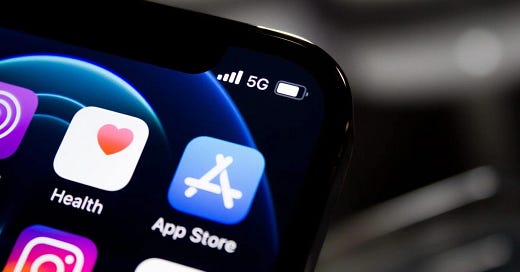Epic win: court delivers crushing blow to Apple
The iPhone maker concedes a resounding legal defeat to Fortnite developer
Apple thought it had dodged the worst. But the tech giant has just suffered a resounding legal defeat to Epic, the developer behind Fortnite. On Wednesday, judge Yvonne Gonzalez Rogers ordered the company to stop charging commissions on external purchases made via its iOS system in the US. In other words, all app developers can now redirect users to an external website without owing Apple a single cent.
“Anti-steering” practice
This stunning move could translate into a massive loss of revenue. The judge justified this drastic decision—contrary to her previous rulings—by pointing to Apple’s conduct. “At every turn [it] chose the most anti-competitive option,” she explained. She also accused the company of lying and is calling for a criminal perjury investigation.
Apple was sued by Epic in summer 2020 by Epic, but it had been relatively spared in the initial verdict. The judge ruled that the Cupertino-based company did not hold a monopoly in mobile app distribution, and therefore did not require the company to open up iOS to third-party app stores or to allow alternative payment systems directly within apps.
However, she did challenge Apple’s “anti-steering” practice, which prohibits developers from redirecting users to external websites for purchases or subscriptions. The judge allowed developers to add “buttons” and “external links”, but she did not provide detailed rules or clarify what level of commission Apple could still claim on those external purchases.
Apple “willfully” chose to ignore judge’s injonction
Essentially, the judge left it up to the company to determine how to comply with her injunction. She now believes it “willfully” chose to ignore the verdict, which was upheld on appeal and by the Supreme Court. Apple implemented new commissions of 12% and 27% on external purchases, compared to 15% and 30% for in-app purchases—levels the judge had already deemed unjustified.
Moreover, these reduced rates are not viable for developers, as they don’t offset the payment processing fees developers must cover for purchases on their own sites. Apple also introduced extremely restrictive conditions that severely limited the ability to include redirect links. On top of that, it deployed “scare screens” to discourage iPhone users from making purchases outside its platform.
In her ruling, the judge detailed internal discussions among Apple’s top executives. She revealed that Phil Schiller, head of the App Store, had advised against charging any commission. But CEO Tim Cook ultimately followed CFO Luca Maestri’s recommendation to adopt the option with no financial downside. “Cook chooses poorly”, the judge concluded.
Apple fears massive loss of revenue
Fed up with Apple’s conduct, she decided to hit hard. In addition to banning commissions, she also forbade any restrictions on the placement or content of external links. And Apple is now only allowed to display a “neutral message” informing users that they are being redirected. “This is an injunction, not a negotiation,” she declared—effective immediately, without waiting for the outcome of the appeal.
By adopting a hardline stance, Apple’s leadership has been severely penalized. Although difficult to quantify, the financial impact of Epic’s lawsuit will now be much greater. Without commissions on external purchases, Apple feared that “most large developers and potentially many medium and small developers would offer link-out purchases to their users”, the judge noted.
An internal estimate put the potential loss at “hundreds of millions or even billions of dollars”. Moreover, that estimate was conservative, as it assumed tight restrictions on external links. Now that such restrictions are banned, usage of this alternative is expected to grow significantly.
Apple executive accused of lying under oath
In parallel, the judge also revealed that an Apple executive lied during his testimony. That executive is Alex Roman, a member of the finance leadership team. On the stand, he claimed Apple had not decided on the 27% commission for out-of-App Store purchases until January 2024, the date of the Supreme Court's final ruling. An “outright” lie, the judge wrote in her decision, after discovering that the option had actually been approved as early as July 2023.
“Neither Apple, nor its counsel, corrected the, now obvious, lies. They did not seek to
withdraw the testimony or to have it stricken”, she emphasized. This could backfire on the company, which now faces potential criminal charges. The judge also faulted Apple for dragging out the legal process and causing unnecessary delays. She ordered the company to pay Epic’s legal fees.




